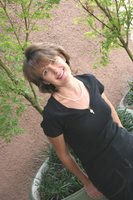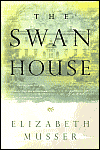 Award-winning author Christine Lynxwiler considers herself hugely blessed to be a wife and mom who lives the crazy writer life in the Arkansas Ozarks. Her latest release Promise Me Always is the first in the Pinky Promise Sisterhood series from Barbour. When Christine isn’t writing, she and her family enjoy kayaking on the nearby river or relaxing together with good books. If you’d like to know Christine better, drop by her website sometime and check out her new release info or latest blog entry.
Award-winning author Christine Lynxwiler considers herself hugely blessed to be a wife and mom who lives the crazy writer life in the Arkansas Ozarks. Her latest release Promise Me Always is the first in the Pinky Promise Sisterhood series from Barbour. When Christine isn’t writing, she and her family enjoy kayaking on the nearby river or relaxing together with good books. If you’d like to know Christine better, drop by her website sometime and check out her new release info or latest blog entry.What new book or project would you like to tell us about?
 I’m excited about my newest release, Promise Me Always, Book one in the Pinky Promise Sisterhood series from Barbour Publishing. The heroine, Allie Richards, wants to have her own landscaping company, but more than that, she’s driven to realize her full potential and make a better life for her daughters.
I’m excited about my newest release, Promise Me Always, Book one in the Pinky Promise Sisterhood series from Barbour Publishing. The heroine, Allie Richards, wants to have her own landscaping company, but more than that, she’s driven to realize her full potential and make a better life for her daughters.Some books germinate in your heart for so long that you can’t remember a time they weren’t there. Allie’s story is one of those for me. Her dreams, her struggles, her zany Pinky Promise friends, even her sense of humor – I knew them all well before I typed the first word. I’m hoping that intimate acquaintance with my characters translates onto the page in a way that makes the reader feel like she knows them, too.
To read a review of Promise Me Always, click here.
Tell us about your publishing journey. How long had you been writing before you got a contract? How did you find out and what went through your mind?
I’ve always wanted to be a writer, but after I married, the dream stayed dormant until 1997, when I was pregnant with my youngest daughter. One night when I was about to fall asleep, the idea for a romance came to me fully plotted. (Unfortunately, that rarely ever happens to me any more.)
When I finished the 75,000 word story, I was ready to market my book. Right. A friend gave me a copy of The Writer’s Market and I sent a proposal to a secular agent. In my cover letter, I remember I mentioned how I’d concocted an amazing combination, a romance for Christians to read. I’d never heard of contemporary Christian fiction so I thought I’d come up with a new genre! How embarrassing.
I waited a lifetime (three months) and called the agent. She told me her dishwasher was smoking and she thought it was on fire, so she couldn’t talk. I thought sure that was an excuse, albeit an elaborate one, to get rid of me, but she ended up sending me a nice rejection saying I should seek out agents/publishers in the “Christian fiction market.”
I signed up for internet service and discovered the (already thriving) world of Christian fiction. I also found out how little I knew about writing books. I started going to Lynn Coleman’s Monday night online workshop and ended up in a crit group with Tamela Hancock Murray.
My family was horrified that I was actually going into a “chat room” but they got over it when they read the revised drafts of my story. I finally realized that no matter how many times I revised my story, it was fatally flawed. The hero was a manipulating jerk for most of the book and in Christian fiction, that wouldn’t fly.
Probably to ease my disappointment, Tamela asked me if I was interesting in joining her and two other published authors in a few anthology proposals for Barbour. She and I came up with four ideas. Barbour’s Fiction Editor, Rebecca Germany, thought two of the ideas had potential. Tamela recruited two other pubbed authors for each anthology proposal. I wrote three chapters and a synopsis. We submitted the proposals and in January 2001, I got a call that Barbour wanted to buy City Dreams.
I was working the front desk of my husband’s chiropractic office at the time, but I jumped up and down and screamed. My husband and the patient he was with came out of the adjusting room. I guess they thought the building was on fire.
In early October, I got an email that they wanted to buy Prairie County Fair, the other anthology we’d proposed. These early sales were the beginning of a solid relationship with Barbour. Over the years, I’ve sold several other novels and novellas to them.
Do you still have self-doubts about your writing?
Only every day. Are there writers who don’t? As in any career, there’s a lot of pressure to get it right. But writing is so subjective. You can get a glowing review, but if you look hard enough, there will be a “Eww” review to balance it out. I try to take the self doubts and turn them into motivation to reach higher with my writing. I try. Some days that works. Others, I count it a success if I manage to just read through yesterday’s work and not delete it.
Was there ever a time in your writing career you thought of quitting?
Okay. If I say “Only every day,” that will sound like I just have one answer for every question, won’t it? I’ll forego cutesy then and say, Yes. There have been many times in my writing career that I’ve thought of quitting. Specifically every time I have a deadline fast approaching and the story doesn’t seem to be working.
My husband and I owned and ran a sawmill during our early years of marriage. I remember stacking boards, being careful to keep each row the required width for a bundle. Sometimes, though, in spite of my best intentions, when I got in a hurry, one or two rows near the bottom would be too narrow. My neat stack of boards would “swarm” and instead of a nice bundle for market, I would end up with a chaotic mess. When my life “swarms” and I’m on a deadline, I think seriously of quitting. So far, once I’ve met the deadline, I reconsider.
What’s the best writing advice you’ve heard?
Glue your backside to the chair and write.
What’s the worst piece of writing advice you’ve ever received?
Don’t force the words. If you don’t feel moved, don’t write. Fine advice before you have deadlines, I guess. But once you’re on a schedule, writing is a responsibility, not an option.
Do you have a pet peeve having to do with this biz?
I hate that you can spend years plotting and planning a story only to have one with a similar premise come out just before yours. Not that there’s anything that can be done about it. I just hate it.
Was there ever a difficult set back that you went through in your writing career?
Just many times that life and deadlines have collided. When you’re staying at the hospital with a parent or nursing kids through the chicken pox, it’s hard to write a book in a timely manner.
What are a few of your favorite books?
This is the scariest question in the whole interview. Many of my favorite authors are close friends. What if I inadvertently leave one out? (Is there a button to leave this question open for addendums?) Tracey Bateman’s Claire books, Rachel Hauck’s Lost in Nashvegas, Susan May Warren’s Everything’s Coming Up Josey, Tiger Lillie by Lisa Samson, Francine Rivers' Mark of the Lion series, Life Expectancy, One Door Away From Heaven, Odd Thomas, Forever Odd, and Brother Odd by Dean Koontz, Ted Dekker’s Blink and his Heaven series, Frank Peretti’s The Oath, This Present Darkness and Piercing the Darkness.
What work have you done that you’re especially proud of and why?
I guess it would be Promise Me Always because the theme of the book – God is in control of our lives – speaks to me on a deep level. I laughed so much during the writing of this book, but I wrote the last segment through repentant tears. It’s a lesson I sorely needed.
Can you give us a look into a typical day for you?
I wish I could, because that would mean I was somewhat organized. I try to write Monday thru Friday. We have a busy chiropractic office and two children who go to a small Christian school that has no bus. If everything goes well, I’m home writing by 10 a.m. I have lunch ready at noon, then write until 2 p.m. That’s the theory. Reality is I write whenever I can.
Do you have a word or page goal you set for each day?
I’d like to write 2500 words a day, Monday thru Friday. I do much less than that when a deadline isn’t pressing and much more when it is. If I were teaching my girls how to be a successful writer, this would be one of those “do as I say, not as I do” areas.
Are you an SOTP (seat of the pants) writer or a plotter?
I’m a plotter who writes by the seat of my pants. I have a plot when I start, but it’s always in a state of flux. Otherwise it’s just boring for me.
What author do you especially admire and why?
Good question. I admire Rachel Hauck for her unabashed love of the Savior that shines through in whatever wonderful story she’s writing, Tracey Bateman for her amazing prolific talent and her willingness to use it for God’s glory in every way, Susan May Warren for her captivating storytelling ability and her readiness to share her knowledge with new authors, Susan Downs for her incredibly poetic prose and quiet spirit of encouragement, Candice Speare for her determination to take her stories (and mine) to a deeper level, Lynette Sowell for her “never give up” spirit, Donita K. Paul for her courage and kindness in life and in writing, Tamela Hancock Murray for taking a chance on me, and Lynn Coleman for all the time and energy she’s given to further Christian fiction.
What is your favorite and least favorite part of being a writer?
My favorite part is writing – breathing life into a story, watching it take shape on the page, seeing the characters grow until they seem real, even to me. My least favorite part is writing – having to pound out words when a hundred other responsibilities call to me, seeing the words on the page and feeling that breathtaking fear that they’re not adequate, that they could be better/should be better, and that I don’t have the ability to make them good enough.
How much marketing do you do? What's your favorite part of marketing?
I do a lot of booksignings. I actually enjoy meeting readers. I’d love to do a newsletter, but not until I tame the deadline beast.
Do you have any parting words of advice?
Glue your backside to the chair, your fingers to the keyboard, shut off the internet until you meet your word count goal, and never give up!






























